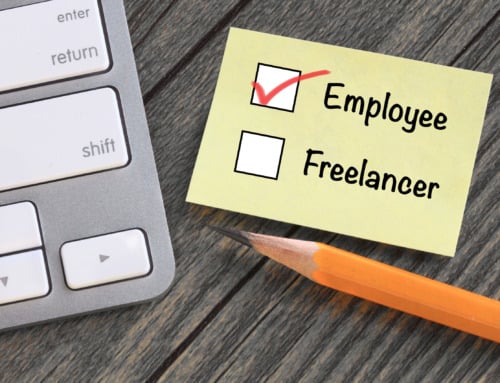It’s a rare agency that does not incur any travel for either themselves or their clients. Because travel norms are very different for everyone, it’s important that the agency have a written travel policy that clearly spells out the processes, boundaries and expectations that come along side that employee’s travel on behalf of the company.
In our work with 250+ agencies a year and our annual salary and benefits survey that is answered by almost 1,000 agency leaders – we were able to pull together what seems to be the “norm” for most US based agencies.
Each agency owner will want to review and modify these policies to fit their own culture, budget, expectations and unique circumstances. In some cases, I’ve just listed what seems to be the common policy and in other cases, I’ve given you some commentary like 30% of agencies do this or that.
My goal is not to give you an off the shelf set of policies but rather a framework from which you can build your own travel policy for your agency.
AGENCY TRAVEL POLICIES (modify for your own shop)
Allowable Expenses
Most agencies will pay or reimburse the employee for all reasonable business expenses incurred while traveling on behalf of the agency.
Agencies will typically not pay for upgrades i(n rental car classes, hotel rooms, flight classes) without prior approval. The exception to this is international travel. Most agencies will pay for business class plane tickets for travel of 6+ hours.
If an employee chooses to live in a different country, the agency does not pay for their travel back to the agency’s home country for meetings (internal or client-facing).
Meals and client entertainment are typically on a daily limit. (See details below) All expenses should be detailed on an expense report. Receipts (with line item detail of expense(s)—NOT just the credit card signature receipt) must be included for any/all reimbursable expenses. Typically these expense reports are expected within 7-10 days of the employee’s return.
Paying for travel
Most agencies purchase all plane tickets and pre-pay for hotel rooms and rental cars with a company credit card when possible. 50% of agencies have a central person make all of the travel arrangements for everyone on the team. The others allow/require the employee to book their own travel, using their corporate card if they have one and their personal card, if they do not.
75% of agencies issue company credit cards to those employees who do a lot of traveling on behalf of the company.
In all cases, agencies have the employees complete some sort of form to request their travel specifics and a different form to document those expenses, whether they are being charged back to a client or not.
All agencies keep the credit card points associated with these purchases (whether it’s with an agency wide credit card or a corporate card issued to the employee) and use them at the agency owner’s discretion.
Cash Advances
Some agencies will issue cash advances when it makes sense. This advance must be detailed on the employee’s expense report with supporting receipts.
Airfare
In order to optimize cost savings for the agency, most will require employees book travel arrangements four to six weeks in advance, whenever possible.
Most agencies will pay/reimburse for a coach seat. The exception to this is international travel. Most agencies will pay for business class plane tickets for travel of 8+ hours.
If an employee chooses to live in a different country, the agency does not pay for their travel back to the agency’s home country for meetings (internal or client-facing).
Food or alcohol purchased on the flight are considered part of the daily meal limit. (see below).
Some agencies are loyal to a particular airline book everything through that airline’s website to maximize the points earned or through a corporate account. Others use some sort of airline aggregator (like expedia.com) or a travel agent. No matter how they book the flight, any perks for doing so are kept and used at the agency owner’s discretion.
Many US based agencies prefer their employees use Southwest Airlines; because they travel to just about everywhere in the US with competitive rates and have the most flexible policies for changing/canceling flights. However, there are times when a direct flight available on another airline may be smarter (i.e. the employee can avoid an overnight stay).
When booking Southwest, employees are asked to book “Wanna Get Away” fares (not Business Select or Anytime) unless not available.
These rules apply to light rail, trains, etc. as well.
Most agencies allow the employee to earn/keep airline loyalty points.
Hotels
Most agencies will pay/reimburse for single-rate hotel room. In room movies, mini-bar, etc. are considered personal expenses and will not be reimbursed. Many agencies will set a per night maximum. $250 before taxes seems to be the norm in the US, with noted exceptions for cities like NYC.
Laundry and dry-cleaning services may be paid/ reimbursed if the service is absolutely necessary for a professional appearance, but usually only with approval from a supervisor.
Some agencies are loyal to a particular brand of hotel and book everything through that brand’s website. Others use some sort of hotel aggregator (like hotels.com) or a travel agent. No matter how they book the hotel room, any perks for doing so are kept and used at the agency owner’s discretion.
Most agencies will allow the employee to earn/keep loyalty points for their individual hotel stays.
Most agencies will not allow their employees to stay in AirBnB or similar housing arrangements because of the risks and liability.
Travel by car
If an employee is traveling by car 100 miles or more total, most agencies will require the employee use a rental car. The agency will pay for the basic rental fee as well as insurance to properly insure the company’s interest and the safety of the employee.
If the trip is shorter in length, the employee can use their personal credit card. 30% of agencies set a flat fee/mile reimbursement that is less than the current IRS rate for mileage. 70% pay the IRS designated rate.
Employees are reimbursed for related parking and tolls. Mileage is verified with Google Maps.
No agency provides insurance or insurance reimbursement when a personal vehicle is used. Nor do they pay for any parking or moving violations incurred while traveling on behalf of the company.
Meals
Most agencies will set a daily limit for meals. Typically it’s around $75-100/day but higher if the employee is traveling to specific cities that are more expensive, like NYC.
The daily reimbursement is per day, not to be accrued over multiple days. If an employee spends more than the limit on a given day they are responsible for the difference.
The employee is typically not expected to live within the daily limit if they are eating with a client and picking up the tab. Most agencies will have a separate (higher) allowance for that.
Alcohol policy
Most agencies have an alcohol policy in their employee handbook or policies documents. They simply reiterate that policy (seems like two drinks is the norm if clients are at the meal, one drink if they are not) in their travel policies. Any alcohol consumed beyond those limits would be a personal expense.
Ground Transportation when the employee flew to their destination
The most cost-effective, safe, and efficient ground transportation is to be used. Taxis, Lyft or Uber’s are the preferred ground transportation method.
Miscellaneous Expenses
Most agencies will not reimburse an employee for personal entertainment purchases like in-room movies, magazines, baseball games, shows, etc. unless they are taking the client with them. (And probably never if they’re watching in room movies with the client!)
Non-reimbursable charges
Most agencies include a section in their travel policy that outlines what they will not cover. The list below is pretty typical.
The following are not reimbursable since they are primarily for personal use: The exception to these items being reimbursable is if it pertains to client entertainment within moderation.
- Airline club memberships
- Airline upgrades
- Alcohol
- Business class for domestic flights/first class for all flights or fees associated with upgrades
- Fees for upgrading of hotel and/or car rentals
- Car repair
- Credit card interest charges
- Child-care, babysitting, house-sitting, pet-sitting/kennel charges
- Commuting between home and office
- Costs incurred by traveler’s failure to cancel travel or hotel reservations in a timely fashion
- Evening or formal wear expenses
- Golf green fees or golf cart rental
- Haircuts and personal grooming
- Health club fees
- Laundry and dry cleaning
- Massages or other spa treatments
- Medicines
- Passports, vaccinations, and visas when not required as a specific and necessary condition of the travel assignment
- Personal entertainment expenses including in-flight movies, headsets, health club facilities, hotel pay-per-view movies, in-theatre movies, books, magazines, sporting events, social activities and related incidental costs
- Other expenses not directly related to the business travel
Adding personal days to a business trip
Most agencies will allow an employee to use PTO or vacation days to add more time in a particular destination. In most cases, the airfare is a non-issue. The extra hotel days are typically paid for by the employee (in some cases the agency will allow the employee to leave it on the company credit card and either deduct it from their next paycheck or ask to be reimbursed) but about 75% of agencies will sometimes pay for the extra night/s of hotel as a perk or thank you to the employee for a job well done at the owner or supervisor’s discretion.
Code of Conduct
95% of agencies have a reminder in their travel policy that the employee is still on the clock when traveling and is expected to conduct themselves in a professional manner.
Irresponsible behavior, including overconsumption of alcohol, when conducting business or representing the organization can have a direct effect on the employee’s employment. Most agencies have no tolerance policy for employees who drive under the influence.
If you’d like to download this post as a word document so you can use it as the template to write your own policies, we’ve made it available here.





